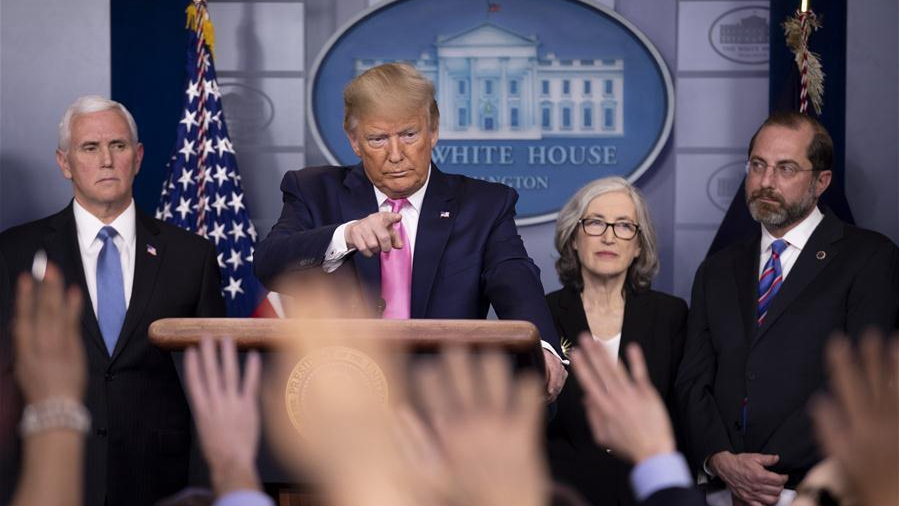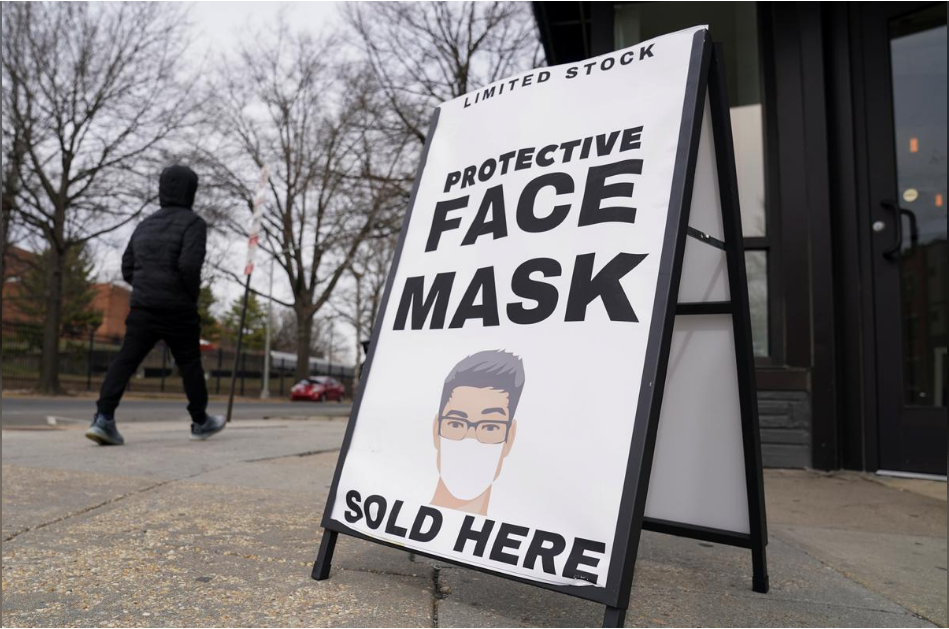
U.S. President Donald Trump attends a press conference in the White House, Washington, U.S., February 26, 2020. /Xinhua
U.S. President Donald Trump attends a press conference in the White House, Washington, U.S., February 26, 2020. /Xinhua
Editor's note: Thom Brooks is the dean of Durham Law School and a professor of law and government at Durham University. The article reflects the author's opinions and not necessarily the views of CGTN.
The coronavirus outbreak has spread to every country. Its epicenter continues to move west from Italy and Spain towards the United States.
Europe is far from in the clear. While Italy appears to have stopped the terrible rise in the numbers of deaths, over 9,000 died at the time of writing and normality is not in sight. France and Spain have not peaked with the United Kingdom bracing itself for what is expected to be a painful fortnight or more.
European countries have several things in common. One of these is nationalized healthcare. While spend per capita can vary widely, all citizens have access to medical care even if these systems are being pushed to their limits.
This issue of having access at a time of a global pandemic is critically important. The state is there to at least try to provide the lifesaving care its citizens need when needed the most.
The lack of a similar nationalized health care system in the United States is now perhaps a greater problem than ever before in living memory. About 44 million Americans lack health insurance. A further 38 million have inadequate cover. Together, this exposes a serious vulnerability for nearly one in three Americans as COVID-19 crosses the Atlantic.
The virus has spread at an alarming rate. The U.S. reported one positive case in late January, and two months later the number increased to 100,717, including 1,544 deaths as of March 27, according to Johns Hopkins University. The lack of universal health care for all puts those who are sick at greater risk.
While European countries acted too slowly to impose lockdown measures to bring the outbreak under control, these have been imposed across multiple countries and having a positive effect in protecting lives – even if at a very steep economic cost.
The idea is that saving lives is the first mission of any responsible government – and the pay outs to those economically disadvantaged to keep businesses solvent and people in their homes will pay off when the outbreak ends and productivity returns.
A very different tune is being played in the United States. Over a dozen states have imposed various lockdowns, including New York, but these efforts can only go so far without the support of the federal government. And with a partisan, divided Congress, all eyes turn to a president running a chaotic administration at the best of times.

A pedestrian passes by a sign outside of a pop-up coronavirus supply store in Washington, U.S., March 5, 2020. /Reuters
A pedestrian passes by a sign outside of a pop-up coronavirus supply store in Washington, U.S., March 5, 2020. /Reuters
Donald Trump's message to Americans that all should be okay by Easter so everyone can enjoy that holiday contradicts the message from those on the frontline that this deadly outbreak will get much worse before it gets better.
Trump's reluctance to act and concerns for the economy rather than public health may play to his businessman persona as he campaigns for a second term.
But if he has got this wrong, he will not have acted in stopping preventable deaths whether out of ignorance or arrogance that voters in November will neither forgive nor forget.
Trump opposes a lockdown because he says it's un-American to stop the country like that. Putting profit before people is not a good look in an election year when the stakes are deadly high. And with every day he refuses to act, the damage unleashed by COVID-19 will only grow.
If the president won't act, hopefully, for their own sakes, all other states will and show the leadership so often lacking in the White House especially at the time it's needed most of all.
(If you want to contribute and have specific expertise, please contact us at opinions@cgtn.com.)